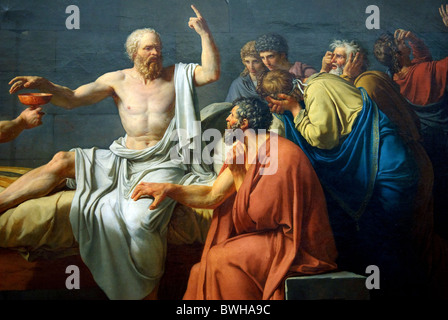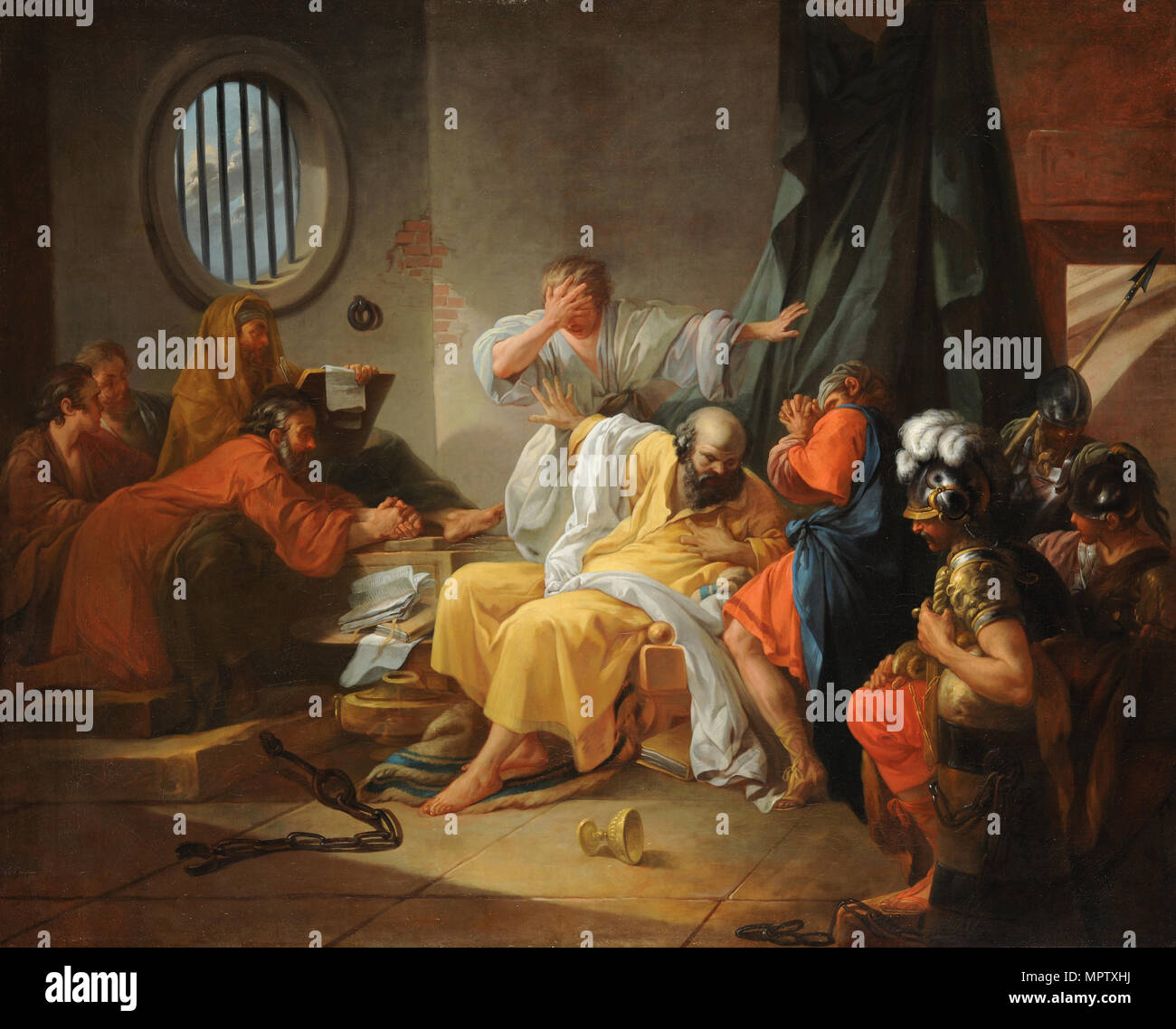

“Socrates is guilty, firstly, of denying the gods recognized by the state and introducing new divinities, and, secondly, of corrupting the young.” In 399 BCE Socrates was charged with impiety by Meletus the poet, Anytus the tanner, and Lycon the orator who sought the death penalty in the case. The accusation read:

In refusing to conform to the social propieties proscribed by Eusebia, Socrates angered many of the more important men of the city who could, rightly, accuse him of breaking the law by violating these customs.

The Death of Socrates by Jacques-Louis David In ancient Athens, individual behavior was maintained by a concept known as 'Eusebia' which is often translated into English as 'piety' but more closely resembles 'duty' or 'loyalty to a course'.


 0 kommentar(er)
0 kommentar(er)
